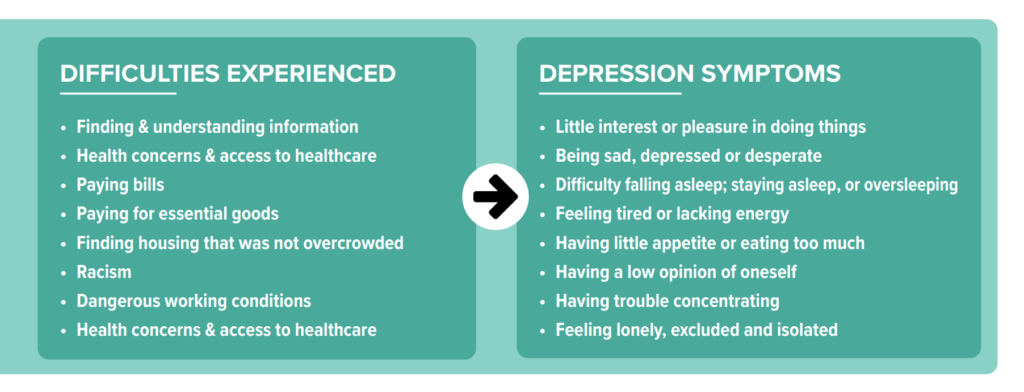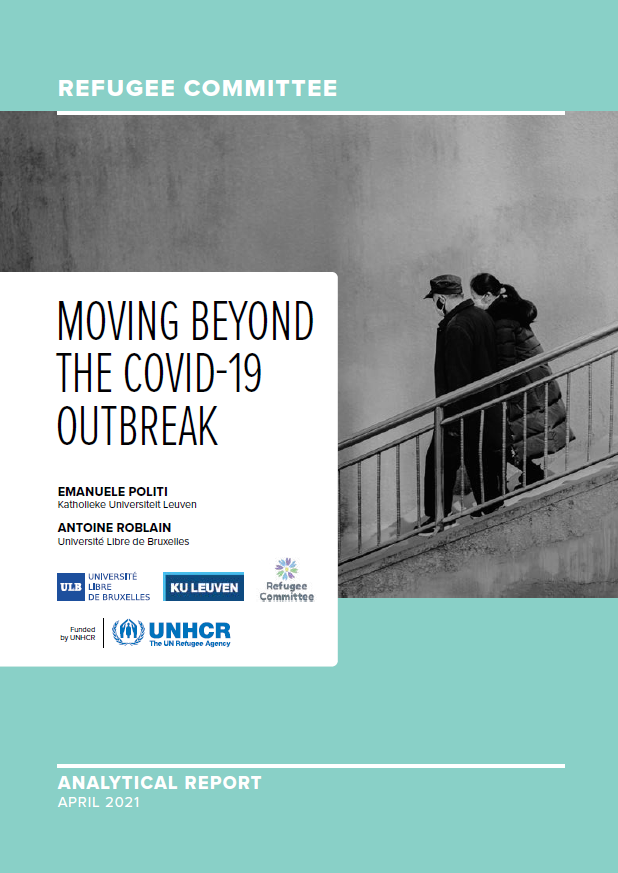Following the COVID-19 outbreak, the Umbrella Refugee Committee collaborated with authorities, universities, local service providers, and refugees to address the specific challenges they faced during the pandemic.
Using a refugee-to-refugee approach, we identified pressuring issues to implement tailored solutions.

What did we do?
1
Data collection
and analysis
2
Group discussions
on vaccination
3
Masks
production
4
Translation and conversation
services
During the pandemic, our refugee committees made significant contributions. We collaborated in practical activities such as mask production, but we also became a frontline actor by providing translation and teleconversation services for patients in a clinic project led by Médecins Sans Frontières Belgium.
We also coordinated focus group discussions with communities resistant to vaccination to understand their concerns and provide them with answers to make health protection accessible to everyone.
To ensure our services and recommendations were grounded in evidence, we partnered with two renowned Belgian academic institutions, Katholieke Universiteit Leuven (KU Leuven) and Université Libre de Bruxelles (ULB), to develop an analytical report on the pandemic’s impact on refugees. Published in 2021 by Emanuele Politi (KU Leuven) and Antoine Roblain (ULB) under the title “Refugee Committee: Moving Beyond the COVID-19 Outbreak”, our supervision of this study was conducted in collaboration with the UN Refugee Agency (UNHCR) and University of Liège (ULiège)’s academic Elodie Hut. Through this knowledge hub, we created a joint advocacy plan for local authorities, providing them with evidence-based recommendations to better support refugees.
What did the report find?
Notable findings included the intensified adverse effects of the pandemic on forcibly displaced migrants due to their precarious legal status, particularly those without residence permits. We reported how their lack of documentation hindered their access to COVID-19 prevention and care measures, exacerbating their struggles to pay for essential goods and obtain healthcare, work in environments compliant with COVID-19 regulations, and secure appropriate housing. The psychological distress resulting from their condition was also an increased burden, with many respondents reporting depression related symptoms and feelings of exclusion, isolation, and loneliness during lockdown.

COVID-19 difficulties and depression symptoms experienced by refugees.
Extract from Politi & Roblain’s report, p.12.
Curious to read the full report?



